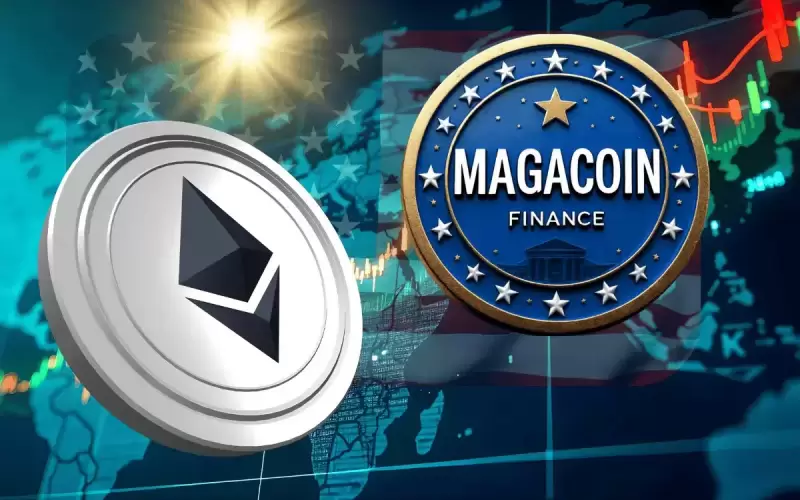 |
|
 |
|
 |
|
 |
|
 |
|
 |
|
 |
|
 |
|
 |
|
 |
|
 |
|
 |
|
 |
|
 |
|
 |
|
Cryptocurrency News Articles
Trump's Bitcoin Promises: More Rhetoric Than Reality
Jan 04, 2025 at 12:01 pm
When Donald Trump promised to create a strategic Bitcoin reserve and make the United States the "crypto capital of the planet," his statements sent ripples through the cryptocurrency community. Bitcoin surged past record highs, reaching unprecedented valuations.

Donald Trump's statements about creating a strategic Bitcoin reserve and making the United States the "crypto capital of the planet" sent ripples through the cryptocurrency community. As a result, Bitcoin surged past record highs, reaching unprecedented valuations.
However, despite these bold promises and Trump's newfound embrace of crypto, significant obstacles make it unlikely that his administration will follow through on these plans. Here's an in-depth look at the reasons and paradox why Trump's Bitcoin promises are more rhetoric than reality:
Bitcoin's decentralized design is inherently at odds with the centralized control the U.S. government wields over the dollar and monetary policy. For Trump and the U.S., the lack of control over Bitcoin would be an unacceptable risk. Establishing a Bitcoin reserve would introduce unmanageable risks, including vulnerability to price manipulation by large holders (whales) and the strategic influence of other nations heavily involved in Bitcoin mining and accumulation.
Furthermore, unlike the dollar, Bitcoin does not align well with U.S. financial and regulatory systems. This could create serious vulnerabilities in critical sectors, such as banking and national security. Establishing robust policies, including Anti-Money Laundering (AML) controls, would require extensive regulatory overhauls and could take decades to fully implement and enforce, further complicating its adoption.
Bitcoin's strengths also work against its integration into the U.S. economy. For instance, Bitcoin can empower geopolitical rivals like Russia, China, North Korea, and Iran. These countries have embraced Bitcoin and other cryptocurrencies as tools to bypass U.S. sanctions and evade international financial restrictions. A U.S. Bitcoin reserve could inadvertently strengthen these adversaries by legitimizing their strategies.
Moreover, by adopting Bitcoin, the U.S. could inadvertently reduce the effectiveness of the dollar-centric global financial system, which underpins much of its geopolitical power. Rivals would benefit from a decentralized financial system that reduces U.S. control over international transactions.
The idea of a U.S. Bitcoin reserve raises fundamental questions about its long-term viability and strategic value. Regardless of how the U.S. approaches Bitcoin accumulation, the outcomes offer little to no advantage, and in some scenarios, they could even undermine national security.
Let's explore two possible scenarios:
If the U.S. were to accumulate the majority of Bitcoin’s supply, it would effectively centralize control of a currency designed to be decentralized. While this might sound advantageous, it would likely render Bitcoin irrelevant.
Alternatively, if Bitcoin holdings remain decentralized and widely distributed across the globe, the U.S. would have little control over the network or its strategic use. This poses significant issues from a national security perspective.
In either case, the idea of a Bitcoin reserve becomes self-defeating. Dominating Bitcoin undermines its utility and global adoption, while failing to dominate leaves the U.S. vulnerable to a financial system it cannot control. In either case, the strategic purpose of such a reserve becomes questionable, especially when weighed against the costs and risks of accumulating and maintaining Bitcoin at a national level.
The concept of a strategic reserve typically involves stockpiling resources essential to national security, such as oil, food, or rare earth metals. These reserves serve practical purposes: they can be consumed, traded for critical goods, or deployed to support national infrastructure. Their value is clear and tangible.
Bitcoin, in contrast, offers no clear utility in emergencies. It cannot be consumed, traded for critical goods, or deployed to support national infrastructure. Its primary value lies in speculation and serving as a digital store of wealth, which is not strategically necessary for a government with the world’s largest economy and monetary reserves.
If the U.S. wanted to diversify its reserves, assets like gold, which has historical precedent and intrinsic value, or investments in cutting-edge technologies, would provide greater security and utility than Bitcoin. Bitcoin’s volatility and lack of intrinsic value make it a poor candidate for this role.
The U.S. relies heavily on financial sanctions to enforce foreign policy objectives. These sanctions work because the dollar is the global reserve currency, and the U.S. controls critical financial infrastructure, including the SWIFT payment system.
Bitcoin's decentralized nature makes it difficult to control or track. A strategic Bitcoin reserve could accelerate the adoption of cryptocurrency by sanctioned entities, undermining U.S. efforts to restrict their financial activity. By reducing reliance on the dollar, adversaries would weaken the effectiveness of U.S.-led sanctions.
Bitcoin's price is notoriously volatile, with frequent swings of 50% or more. If the U.S. were to stockpile Bitcoin, any sharp decline in its value could result in significant financial losses, eroding public trust in government fiscal management. Historical examples, such as the 70% drop in Bitcoin prices between 2021 and 2022, illustrate the risks involved.
Moreover, Bitcoin's speculative appeal makes it more suitable for individual investors than for national reserves. Holding such
Disclaimer:info@kdj.com
The information provided is not trading advice. kdj.com does not assume any responsibility for any investments made based on the information provided in this article. Cryptocurrencies are highly volatile and it is highly recommended that you invest with caution after thorough research!
If you believe that the content used on this website infringes your copyright, please contact us immediately (info@kdj.com) and we will delete it promptly.
-

- Ethereum (ETH) Shows Signs of Recovery, But Faces Resistance at $2,000
- Apr 03, 2025 at 01:45 pm
- ETH is currently trading at $1,901, with analysts pointing to a potential bull run if the asset can reclaim key resistance levels. The Relative Strength Index (RSI) is signaling a possible reversal, while trading volumes are climbing—suggesting an increase in buying pressure.
-

-

-

- The internet is currently experiencing a storm of Ghibli-style AI-generated images.
- Apr 03, 2025 at 01:40 pm
- When ChatGPT announced this, the company also did not expect an overwhelming response. But, the other side of the coin is that many digital activists are raising privacy concerns over the same.
-

-

-

-

-





























































